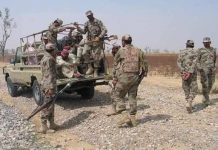Author: Jamal Baloch
China’s debt trap diplomacy has become a major concern for many developing countries around the world. Through its Belt and Road Initiative, China has provided billions of dollars in loans for infrastructure projects in countries such as Pakistan, Sri Lanka, and Malaysia. While these loans have the potential to provide much-needed investment in these countries, they also come with significant risks.
One major concern is that many of these loans come with onerous terms and conditions that favor Chinese companies and make it difficult for recipient countries to pay them back. This has led to fears that China is using its loans as a means of exerting influence over these countries and increasing its economic and political control.
The Gwadar port in Balochistan is a prime example of the dangers of China’s debt trap diplomacy. The port, which is being built with Chinese investment as part of the China-Pakistan Economic Corridor (CPEC), has faced numerous delays and cost overruns, and there are concerns that Pakistan will be unable to pay back the loans it has taken out to fund the project. This could leave Pakistan at the mercy of China, with potentially serious consequences for the country’s sovereignty and independence.
In addition to the economic risks, China’s debt trap diplomacy has also been criticized for the environmental and social impacts of the infrastructure projects it funds. In many cases, these projects have led to the displacement of local communities, the destruction of natural habitats, and the erosion of cultural traditions.
In Balochistan, the China-Pakistan Economic Corridor (CPEC) has had devastating consequences for the local population. Hundreds of villages along the route of the project have been burned to the ground, and thousands of people who resisted the CPEC have been forcibly disappeared and killed. Despite the promises of economic development, the CPEC has brought nothing but more atrocities, displacement, and aggression to the Baloch people, making their lives miserable. The Baloch people have suffered greatly as a result of this project.
Overall, China’s debt trap diplomacy poses significant risks for the countries that participate in it, and it is important for these countries to carefully consider the long-term implications before taking on Chinese loans. While the potential benefits of such investments may be tempting, the potential costs may ultimately outweigh them.
Balochistan has been at the forefront of resistance to the Gwadar port and other projects under the China-Pakistan Economic Corridor (CPEC). In response, they have mounted a campaign of resistance, including attacks on Chinese and Pakistani interests in the region. This has led to concerns about the safety and security of Chinese and Pakistani personnel in Balochistan, and has raised tensions between the Chinese and Pakistani governments. As a result, Balochistan has become the first region where China has faced armed resistance to its infrastructure projects. While these attacks have been condemned by the Chinese and Pakistani governments, it is important to consider the motivations and justifications behind them from the perspective of international law.
According to the United Nations Declaration on the Rights of Indigenous Peoples, indigenous peoples have the right to the “full and effective participation in all matters that may affect their rights and interests.” This includes the right to give or withhold their consent to the development of projects on their ancesteral lands.
In the case of the China-Pakistan Economic Corridor (CPEC) and the construction of the Gwadar port in Balochistan, it is clear that the Baloch people have not been adequately consulted or given their consent to these projects. The Baloch people have long resisted the presence of outside powers in their region, and they have argued that the CPEC and Gwadar port are being carried out without regard for their rights and interests.
Given this context, it is not surprising that Baloch freedom fighters have resorted to attacks on Chinese interests in the region. While violence is never to be condoned, it is important to recognize that these attacks are a manifestation of the Baloch people’s frustration and desperation in the face of ongoing exploitation and disrespect for their rights.
Under international law, it is recognized that people have the right to self-determination and the right to resist foreign occupation and oppression. In the case of Balochistan, it can be argued that the construction of the Gwadar port and other projects under the CPEC represent a form of foreign occupation and oppression, and that the Baloch freedom fighters are justified in their resistance to these projects.
Furthermore, international law also provides for the right of people to defend themselves against human rights abuses, and there have been numerous reports of human rights violations committed by the Pakistani government and its security forces in Balochistan. In such a context, it can be argued as the Baloch freedom fighters claim that they are acting in self-defense and are therefore justifiable in their attacks on Chinese interests in the region.
Disclaimer: The views and opinions expressed in this article are those of the author and do not necessarily reflect the official policy or position of The Balochistan Post or any of its editors.






























